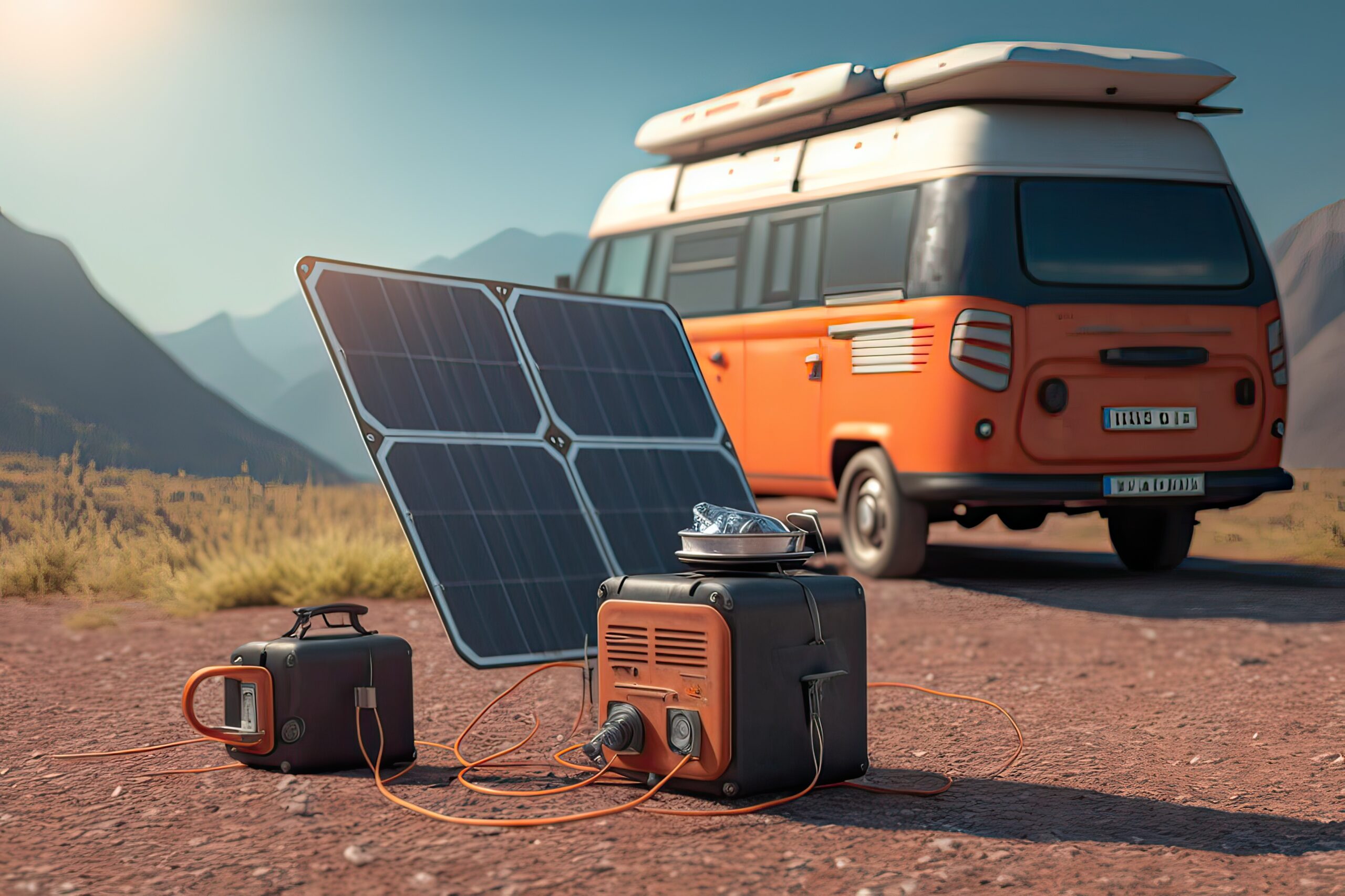Key Takeaways:
- Versatility and Reliability: Portable solar panels provide reliable electricity in remote and emergency situations through efficient solar energy harnessing.
- Key Selection Criteria: Important factors for choosing solar panels include power needs, efficiency, portability, and compatibility with other devices.
- Sustainable Energy: Portable solar panels offer a practical and eco-friendly energy solution, promoting sustainability by reducing reliance on non-renewable resources.
In an era where natural disasters and unforeseen power outages are increasingly common, the ability to adapt and maintain autonomy over essential resources becomes vital. Portable solar panels are at the forefront of this adaptive technology, providing a reliable source of power when traditional grids are down. They not only offer a lifeline during crises but also pave the way towards a sustainable future by leveraging the power of the sun.
That said, this guide will explore the intricacies of portable solar panels for emergency preparedness. It will explain how these devices work and discuss the key factors to consider when choosing your portable solar panels.
What Are Portable Solar Panels?

Portable solar panels are compact, mobile units designed to capture and convert sunlight into usable electrical energy. Unlike fixed solar panel system, these panels are typically smaller, more flexible, and can be easily transported and set up in various locations. This makes them ideal for camping, emergency preparedness, remote work, and any situation where traditional power sources are unavailable or unreliable.
How Do Portable Solar Panels Work?
Portable solar panels work by converting sunlight into electricity using photovoltaic (PV) cells, which are the primary components of these panels. Here’s how the process unfolds:
1. Absorption of Sunlight
Generally, photovoltaic cells within a portable solar panel contains layers of semiconductor material, typically silicon. When sunlight hits these solar cells, the semiconductor absorbs the light, causing the energy from the light to be transferred to the semiconductor.
2. Generation of Electrical Current
The energy from the absorbed light excites electrons in the semiconductor material, causing them to move freely. This movement of electrons creates a flow of electrical current. This process is known as the photovoltaic effect.
3. Flow of Electricity
The electrical current generated by the electrons flows out of the solar panel through wires. These wires are connected to a solar regulator or charge controller, which manages the voltage and current to prevent battery overcharging.
4. Conversion and Storage
The electricity produced by the panels is typically direct current (DC). You can either use it immediately to power DC devices or store it in a battery for later use. If electricity is needed to power devices that require alternating current (AC), it must pass through an inverter, which converts DC into AC.
5. Usage
Once converted to the appropriate form, the electricity can be used to power various devices and appliances, depending on the capacity and output of the solar panel setup.
Factors To Consider When Selecting Portable Solar Panels
When selecting portable solar panels for emergency preparedness or other applications, it’s essential to consider several factors to ensure you find the best fit for your needs:
Power Requirements
Determining the correct wattage is crucial when choosing portable solar panel systems. The power output needed depends on the devices you aim to charge. For example, you will need panels with a higher wattage for larger appliances, while you can charge smaller electronics like smartphones and tablets with lower-wattage panels. It’s essential to calculate the total wattage of all devices you plan to support to select a panel that meets your energy needs efficiently.
Efficiency
Efficiency is a crucial factor when picking solar panels. Panels with high conversion efficiency will generate more electricity from the same amount of sunlight, making them more effective. This is particularly important in emergencies when you may have limited sunlight. High-efficiency panels ensure that you maximize the clean energy produced during daylight hours.
Portability
The size and weight of the panels are vital if you need to move them regularly or carry them over distances. Compact, lightweight panels are ideal for mobility. Additionally, many portable solar panel systems are designed to be foldable, and some come with carrying cases, which enhances their portability and ease of use.
Durability
For outdoor exploration, especially in emergency conditions, the durability of solar panels is essential. Look for models constructed with robust, weather-resistant materials capable of withstanding harsh environments. Features like waterproofing or resistance to extreme temperatures and corrosive conditions will ensure that the panels last longer and reliably perform when you need them most.
Type Of Panels
The choice between monocrystalline, polycrystalline, and thin-film solar panels will affect performance and cost. Monocrystalline panels offer high efficiency and performance but at a higher price point. Polycrystalline panels provide a good balance between cost and efficiency, making them a popular choice. Thin-film panels are more flexible and lighter but generally offer lower efficiency.
Compatibility
It’s crucial to ensure that the solar panels are compatible with the batteries or generators you plan to use. Some solar panels come equipped with integrated controllers or batteries, while others might require additional components. Checking compatibility before purchase avoids additional expenses and complications during setup.
Price
The cost of solar panels can vary widely based on their features and brand. While it may be tempting to choose the cheapest option, it’s important to consider how the price relates to the panel’s efficiency, durability, and overall quality. Sometimes, investing more upfront can lead to better long-term value through greater reliability and efficiency.
Warranty And Support
A solid warranty can provide peace of mind and is often an indicator of a quality product. More extended warranties suggest that the manufacturer has confidence in their product’s durability. Additionally, reliable customer support is crucial for addressing any questions or issues that may arise, making it an essential factor to consider during the purchase process.
Conclusion
As technology advances, the efficiency and accessibility of portable solar panels continue to improve, making them an increasingly practical choice for both individuals and communities. Investing in portable solar panels is not just about securing an energy backup—it’s about embracing a future where power is accessible, clean, and sustainable, regardless of the circumstances.
You May Also Like: From Rain City to Sparkle: Picking the Best Chimney Sweep Services in Seattle



